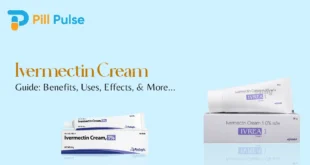Related Articles
Pimple scars, or acne scars, are common skin issues that many people struggle with long after their acne clears up. While there are various medical treatments like isotretinoin 40 mg available to reduce acne scars, natural remedies can also be effective and gentler on the skin. These methods can promote healing, reduce inflammation, and encourage the skin to regenerate. You can buy accutane online for acne or pimples cure. It may cause some common side effects. In this blog, we’ll explore the best natural ways to remove pimple scars and improve your skin’s appearance over time.
Understanding Pimple Scars
Before diving into natural remedies, it’s important to understand the types of pimple scars and how they form. There are two main types of acne scars:
- Atrophic scars: These are depressions or indentations in the skin caused by the loss of tissue during the healing process. There are subtypes like ice pick scars, boxcar scars, and rolling scars.
- Hypertrophic scars: These are raised scars that develop when the body produces too much collagen during the healing process.
Both types can affect skin texture and tone, making the complexion appear uneven. While it can be challenging to completely remove pimple scars, natural remedies can help fade them, minimize their appearance, and promote skin regeneration.
1. Aloe Vera Gel
Aloe vera is one of the most effective natural remedies for treating skin issues, including pimple scars. It has powerful anti-inflammatory and healing properties, making it ideal for soothing damaged skin.
How to use:
- Extract fresh aloe vera gel from the leaf and apply it directly to the scarred area.
- Leave it on for 30 minutes before rinsing with lukewarm water.
- Repeat this process daily for optimal results.
Aloe vera helps moisturize the skin, promotes collagen production, and accelerates the skin’s healing process, which can gradually reduce scar visibility.
2. Lemon Juice
Lemon juice contains natural bleaching properties that help lighten pimple scars. It’s also rich in vitamin C, which promotes collagen synthesis, helping to repair damaged skin.
How to use:
- Squeeze the juice from a fresh lemon and apply it to the scarred area using a cotton ball.
- Leave it on for 10-15 minutes, then rinse with water.
- Apply a moisturizer afterward, as lemon juice can be drying.
It’s important to use lemon juice sparingly and apply sunscreen after use because it can make the skin more sensitive to sunlight.
3. Honey
Honey is a natural humectant, which means it retains moisture in the skin, keeping it hydrated. Its antibacterial and anti-inflammatory properties also help heal scars and prevent future breakouts.
How to use:
- Apply raw honey directly to the pimple scars and leave it on overnight.
- Rinse your face with lukewarm water in the morning.
- Repeat this process regularly for the best results.
Honey nourishes the skin, encourages tissue regeneration, and can help fade acne scars over time.
4. Coconut Oil
Coconut oil is packed with fatty acids, such as lauric acid, which have antibacterial and anti-inflammatory properties. It also contains vitamin E, which promotes the healing of skin tissue and reduces scarring.
How to use:
- Warm a small amount of coconut oil between your palms and gently massage it into the scarred areas.
- Leave the oil on overnight, and rinse it off in the morning.
- You can use coconut oil as a nightly treatment for pimple scars.
Be cautious with coconut oil if you have oily or acne-prone skin, as it can sometimes clog pores and cause breakouts in some individuals.
5. Rosehip Seed Oil
Rosehip seed oil is a powerhouse for skin healing. It contains essential fatty acids, vitamins A and C, and antioxidants that help reduce pigmentation, improve skin texture, and promote collagen production.
How to use:
- Apply a few drops of rosehip seed oil to the affected areas and massage gently.
- Use this oil once or twice a day for several weeks to see noticeable results.
Rosehip seed oil has been shown to improve the appearance of scars, making it a valuable addition to your skincare routine.
6. Baking Soda
Baking soda is a mild exfoliant that can help remove dead skin cells, promote skin regeneration, and reduce the appearance of scars over time. It also balances the skin’s pH, which is essential for maintaining healthy skin.
How to use:
- Mix one tablespoon of baking soda with a small amount of water to form a paste.
- Gently massage the paste onto the scarred area in circular motions for about two minutes.
- Rinse with lukewarm water and apply a moisturizer afterward.
Exfoliating with baking soda can help smooth the skin and diminish pimple scars gradually.
7. Apple Cider Vinegar
Apple cider vinegar (ACV) acts as a natural astringent and exfoliant, helping to fade scars and improve skin texture. Its acetic acid content can lighten pigmentation and promote skin cell turnover.
How to use:
- Dilute ACV with water (1 part ACV to 3 parts water).
- Apply the mixture to the scars using a cotton ball and leave it on for 10-15 minutes.
- Rinse with water and follow up with a moisturizer.
ACV can help reduce redness, smooth the skin, and lighten scars, but be careful if you have sensitive skin, as it may cause irritation.
8. Turmeric
Turmeric has been used for centuries in skincare due to its anti-inflammatory and antioxidant properties. It helps reduce hyperpigmentation, promotes healing, and evens out skin tone.
How to use:
- Mix one teaspoon of turmeric powder with a small amount of water or honey to create a paste.
- Apply the paste to the scarred area and leave it on for 20-30 minutes.
- Rinse with lukewarm water.
Turmeric can brighten the skin and reduce the appearance of pimple scars over time when used regularly.
9. Cucumber
Cucumber has a high water content, making it an excellent hydrating agent for the skin. It also contains vitamins A, C, and E, which help in skin repair and regeneration.
How to use:
- Slice a cucumber and apply the slices directly to the affected areas.
- Leave them on for 30 minutes before rinsing your skin with water.
Cucumber is soothing, helps reduce inflammation, and can lighten the scars when used consistently.
10. Papaya
Papaya contains an enzyme called papain, which is a natural exfoliant that helps remove dead skin cells and promotes new cell growth. This can improve the texture of your skin and reduce the appearance of scars.
How to use:
- Mash a piece of ripe papaya and apply it to the affected areas.
- Leave it on for 20-30 minutes before rinsing with water.
- Use this remedy 2-3 times a week for the best results.
Additional Tips to Prevent Further Scarring
In addition to using natural remedies, here are some tips to help prevent pimple scars from worsening or reappearing:
- Avoid picking or squeezing pimples: Picking at acne can cause further inflammation and increase the likelihood of scarring.
- Use sunscreen daily: Sun exposure can darken scars and slow the healing process. Wearing sunscreen can help protect your skin and fade scars more quickly.
- Stay hydrated: Drinking enough water keeps your skin moisturized and promotes natural healing.
- Maintain a healthy diet: A diet rich in vitamins, minerals, and antioxidants supports skin health and can help reduce inflammation and promote healing.
Conclusion
While it can take time and consistency, natural remedies offer a safe and gentle way to reduce the appearance of pimple scars. Ingredients like aloe vera, honey, lemon juice, and rosehip seed oil are effective at promoting healing, reducing inflammation, and improving skin texture. By incorporating these natural treatments into your skincare routine and following preventive measures, you can gradually fade pimple scars and achieve smoother, clearer skin naturally.
 Our Gateway to Insightful Blogging Exploring Ideas, Sharing Knowledge, Inspiring Minds
Our Gateway to Insightful Blogging Exploring Ideas, Sharing Knowledge, Inspiring Minds



